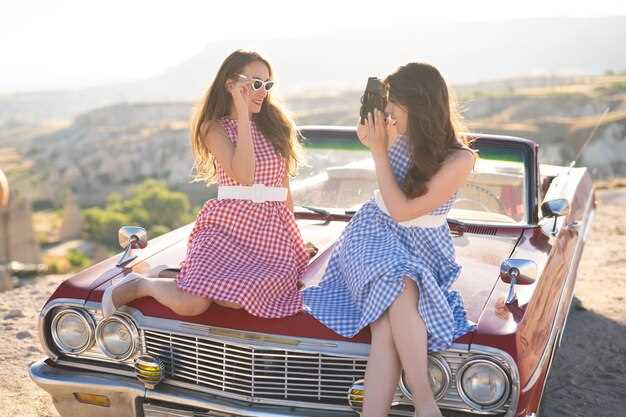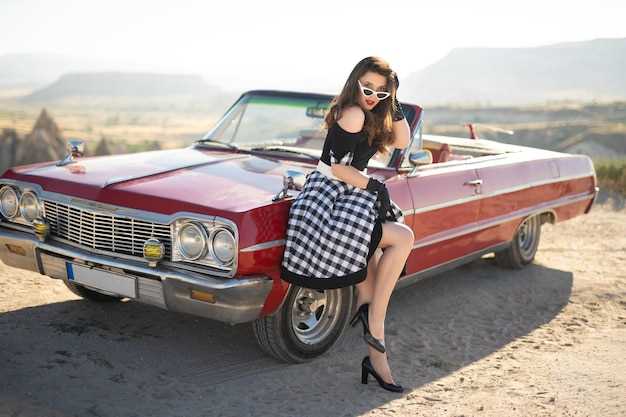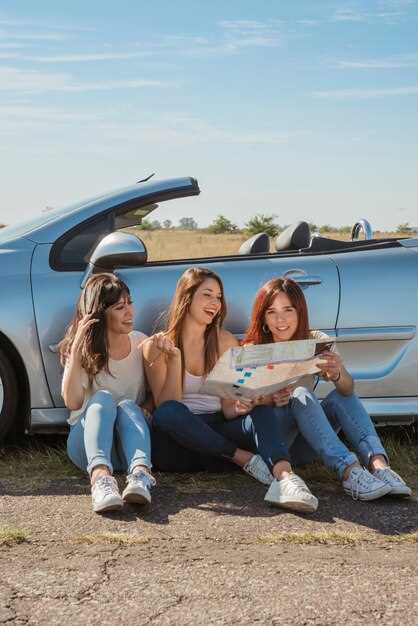
For many automotive enthusiasts, classic cars represent more than just a mode of transportation; they are a profound hobby that merges history, craftsmanship, and a sense of community. The allure of these timeless vehicles draws individuals into a world where they can appreciate the intricate details and unique designs that define each era. Embracing a classic car as a passion allows enthusiasts to engage with a rich heritage, transforming weekends into an opportunity for both relaxation and excitement.
The weekend car culture often thrives on the camaraderie built among classic car aficionados. Whether attending local car shows, participating in vintage rallies, or simply cruising down scenic routes, the experience fosters connections with like-minded individuals who share a love for these magnificent machines. This sense of community is not just about the cars; it is about the stories and memories created along the way, making every drive an adventure.
Moreover, owning and maintaining a classic car can be a fulfilling hobby that challenges one’s mechanical skills and creativity. From restoration projects to routine maintenance, engaging with a classic car provides hands-on experience that modern vehicles often do not. As enthusiasts dive into the technical aspects of these cars, they not only preserve history but also cultivate a deeper appreciation for the engineering marvels of the past. In this way, classic cars become a bridge between generations, allowing the joy of automotive history to be passed down and celebrated.
Choosing Your First Classic Car: Key Factors to Consider

Embarking on the journey to own your first classic car can be an exciting and fulfilling endeavor. When selecting the perfect vehicle for weekend drives, several key factors should guide your decision.
Budget is one of the most critical aspects to consider. Determine how much you are willing to spend not only on the purchase but also on maintenance, insurance, and parts. Classic cars can vary significantly in price, so setting a clear budget will help narrow your options.
Next, evaluate the type of car that fits your vision. Whether you’re drawn to muscle cars, vintage sedans, or classic sports cars, knowing your preferences will help you focus on what excites you the most. Think about how you plan to use the car during weekends–whether for casual cruising or participating in car shows.
Consider the condition of the vehicle. Classic cars come in various states of repair, from fully restored to projects requiring significant work. If you are handy with tools and enjoy working on cars, a restoration project might be a rewarding challenge. If not, opting for a car that is already in good condition can provide immediate enjoyment without extensive effort.
The availability of parts is another essential factor. Some classic cars have a robust aftermarket support network, making it easier to find replacement parts. Others may be rare, complicating repairs and maintenance. Research the car’s history and support before making a purchase.
Lastly, assess the community surrounding the specific classic car you are considering. Engaging with fellow enthusiasts can enhance your experience, offering support, advice, and camaraderie. The classic car community often hosts events, gatherings, and local car clubs that could enrich your ownership experience.
By taking these factors into account, you can make an informed decision about your first classic car, ensuring it’s a rewarding weekend passion that you’ll enjoy for years to come.
Restoration vs. Maintenance: Making the Right Choice for Your Hobby

When it comes to classic cars, enthusiasts often find themselves at a crossroads: should they focus on restoration or prioritize maintenance? This decision significantly impacts the enjoyment of your weekend hobby, shaping the way you interact with your vehicle and the time you invest.
Restoration involves bringing a classic car back to its original condition, requiring substantial effort and investment. It can be a rewarding process, allowing hobbyists to immerse themselves in the history and craftsmanship of their vehicle. However, full restoration often involves extensive work over long periods, thus consuming weekends with projects that can sometimes feel overwhelming.
On the other hand, maintenance focuses on keeping your classic car in good running condition with less intensive commitment. This approach allows for a more leisurely pace, enabling owners to enjoy weekend drives without the pressure of major projects. Regular maintenance work can keep classic cars looking great and performing well, making it possible to continue appreciating them without diving into extensive restoration tasks.
Choosing between restoration and maintenance ultimately depends on your personal goals and the resources available. If you relish the challenge and have the time, restoration can be a deeply fulfilling aspect of your classic car hobby. Conversely, if you prefer to spend your weekends enjoying the ride rather than laboring in the garage, prioritizing maintenance may be the ideal path.
Building a Community: Connecting with Other Classic Car Enthusiasts
Engaging in the classic car hobby is more than just owning a vintage vehicle; it’s about connecting with like-minded individuals who share your passion. Weekends provide the perfect opportunity to meet fellow enthusiasts, whether through local car shows, club meetings, or online forums. These connections can enhance your experience and provide valuable insights into restoration and maintenance.
Joining a classic car club can be particularly rewarding. Clubs often organize weekend events, rallies, and outings, allowing members to showcase their cars and share stories. This sense of camaraderie fosters friendships that extend beyond the car itself, creating a network of support and knowledge.
Social media platforms and dedicated online communities also play a crucial role in connecting enthusiasts. By participating in discussions, sharing photos, and seeking advice, you can engage with a global audience of classic car lovers. Weekend chats and virtual meet-ups have become popular, allowing you to exchange tips and experiences regardless of your location.
Moreover, collaborating with others on restoration projects can deepen your understanding of classic cars. Whether it’s tackling a challenging repair or sharing parts and tools, working together enriches the hobby and builds lasting relationships.
Ultimately, building a community around your passion for classic cars not only enhances your weekend activities but also creates an enriching environment where knowledge, friendship, and enthusiasm thrive.




